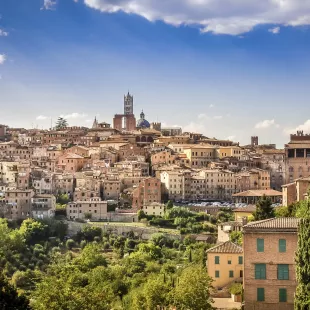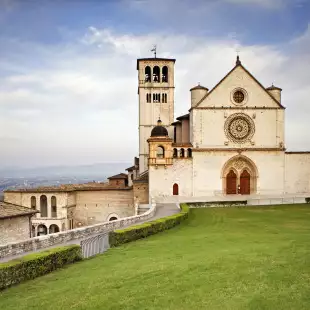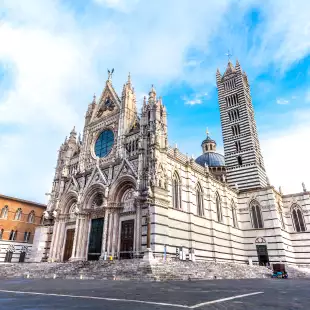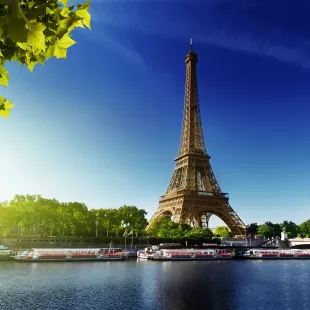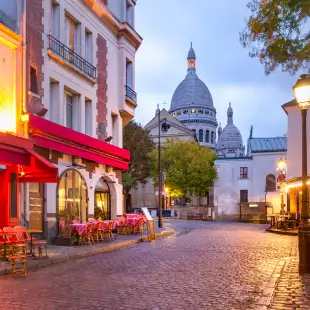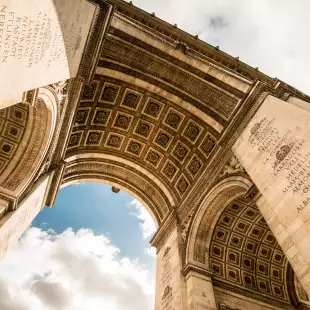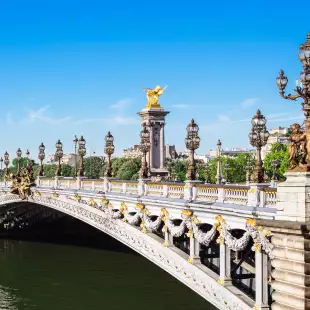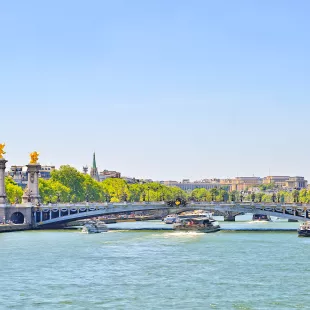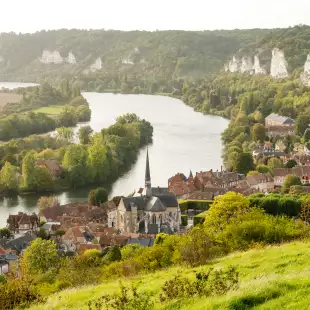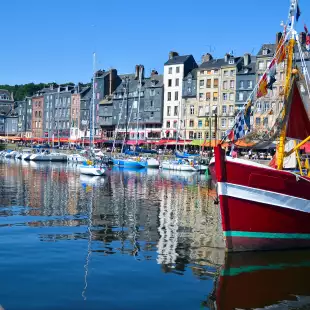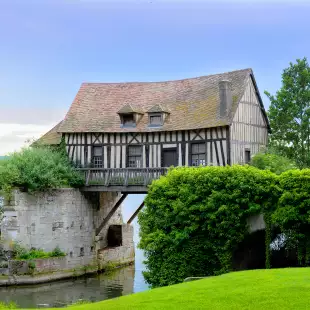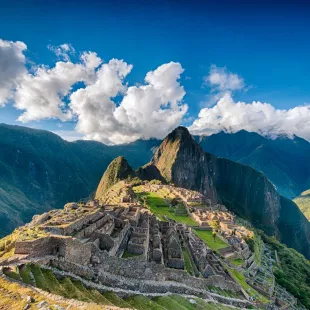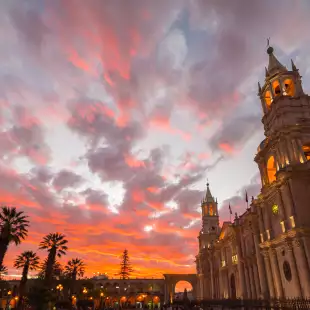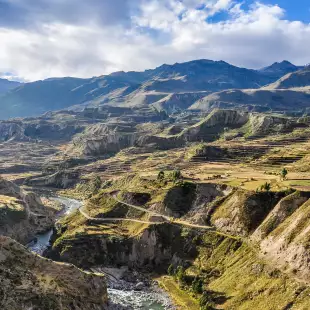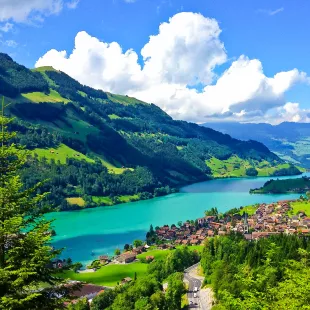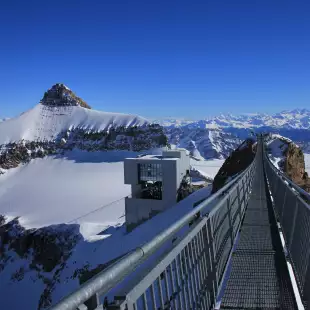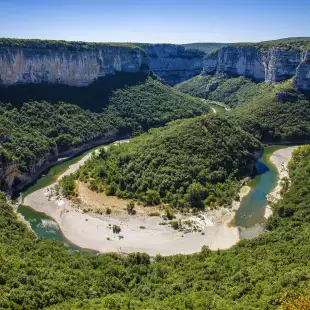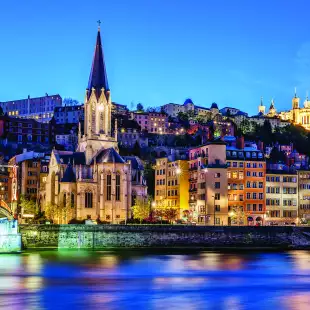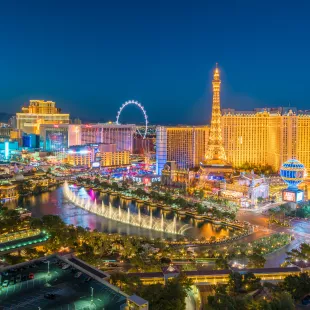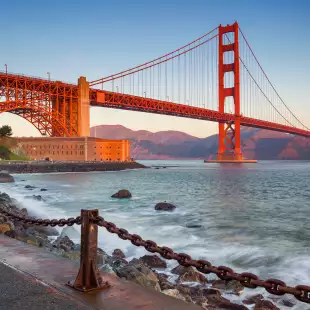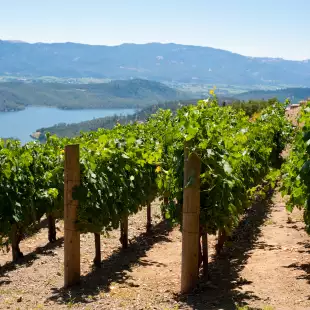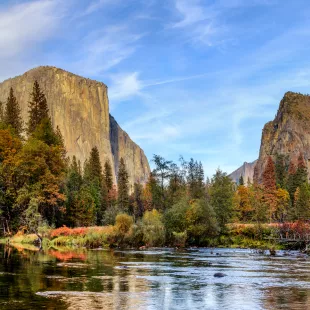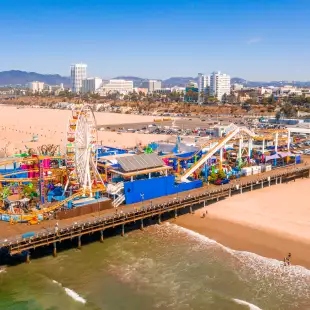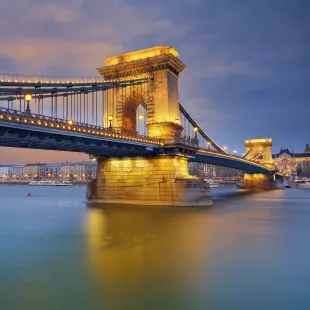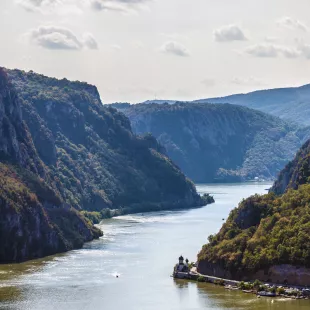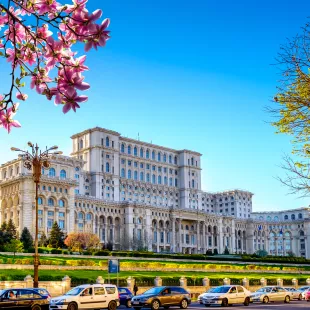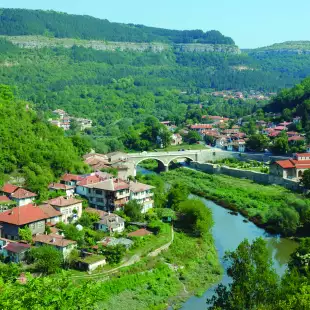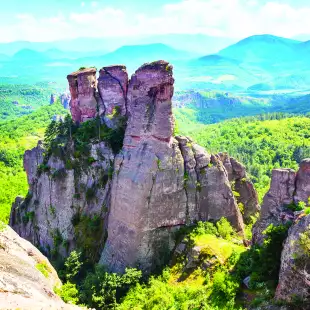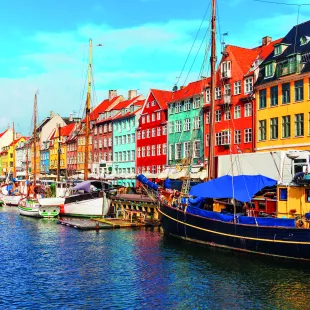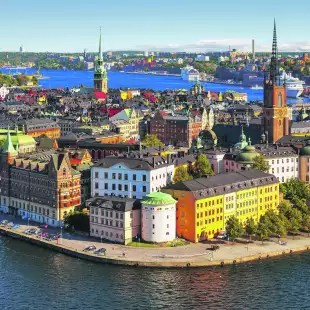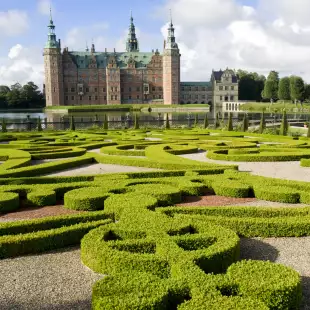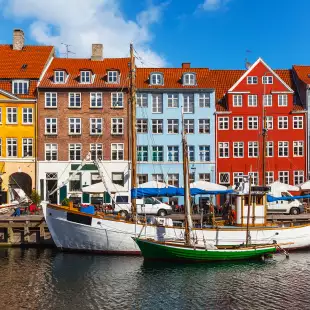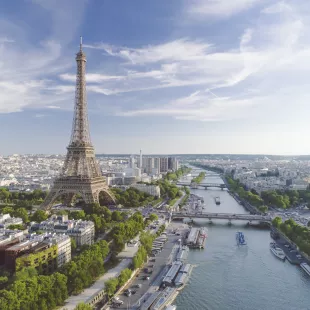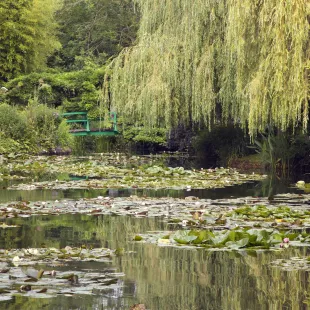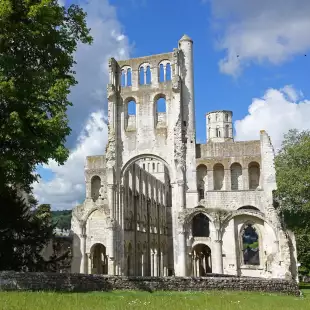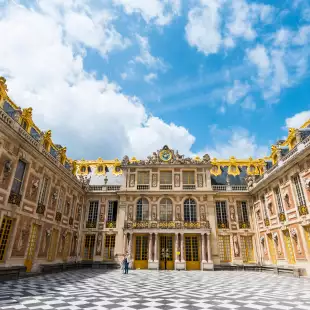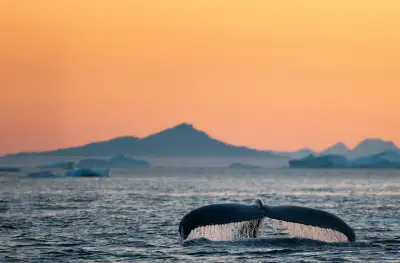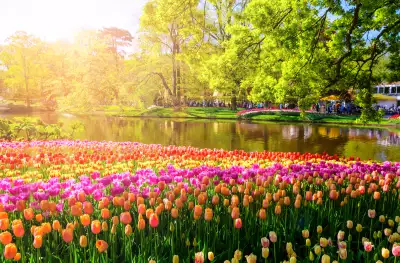Splash landings! The world's best fountains
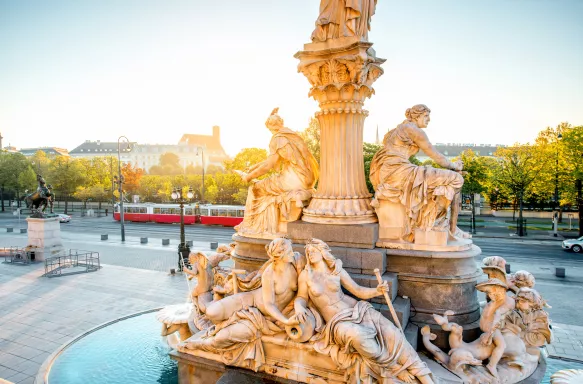
That which the fountain sends forth returns again to the fountain.
Fountains began as natural stone drinking water basins, before evolving through the ages. From the Romans, who built them in their cities, to the beautiful statues placed in Medieval and Renaissance palace gardens. Of course, today they’re found almost anywhere. You need only visit a square, a park, an office building reception – even your neighbour’s back garden. But why have they remained such a presence in the world? Is it the appearance of symbolic figures? The architecture of the past? Or is there an inner beauty? Whatever the reason, you’re sure to encounter water wonders that wow in all four corners of the world. Wherever you’re heading you should make time to soak up these aquatic attractions and to help, we’ve listed a few of our favourites.
The world’s best fountains
Fountain of Neptune - Florence, Italy
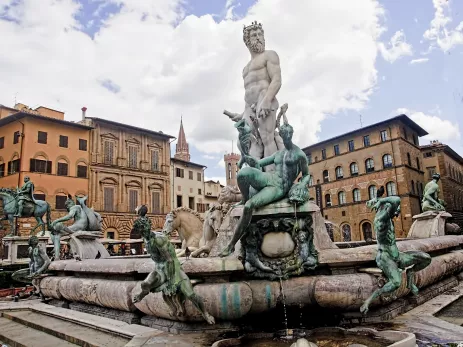
As you probably know, Neptune was the mythological Roman god of the sea. He carried a trident, had power over the oceans and lived in an underwater palace. Or did he? That’s the question. In Bologna, the Fountain of Neptune was constructed in the 16th century by the sculptor, Giambologna. The fountain was built for Pope Pius IV to symbolise his power (much like Neptune). The god of the sea holds out his hand as if he’s calming the waters and beneath him are four cherubs that represent rivers of the world – the Nile, the Daube, the Amazon and the Ganges.
Rain Man – Florence, Italy
If you’re looking for something more contemporary, in the middle of a small traffic island in this Tuscan city, stands alone, bronze figure. Dressed for the weather in a sherlock Holmes style trench coat, hat and boots, he stands over 3 metres high and above his head, the water streams down around him, cleverly creating the appearance of an umbrella. Gifted to the city by its creator, the artist Jean-Michel Folon in 2002, the statue has been damaged twice by motorists in recent years. The mayor suggested a relocation to a more tranquil spot, but the Florentines voted overwhelmingly in favour of tradition and so, he’s stayed put.
On a Florence and Tuscany tour, you’ll be amazed at the sight of this magnificent fountain. Look at the trident, notice how similar it is to Maserati’s logo...
Fountain with Angels – Pisa, Italy
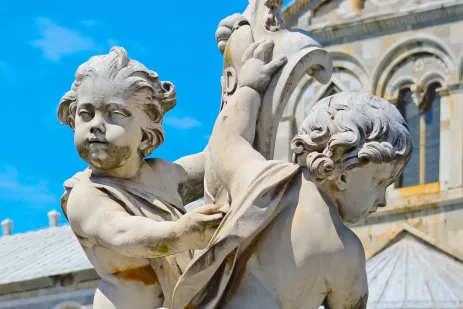
Constructed during the 17th century by Giovanni Antonio Cybei and Giuseppe Vaccà, the Fontana dei Putti (Fountain with Angels) originally was used as a water source for locals in the days before anyone had running water at home. After spending centuries in a back-and-forth frenzy of dislike, replacement and removal, the 20th century saw change – the fountain was slowly starting to be recognised as a historical monument. Going forward another century, the rise of social media has been the real kicker. Instagram, Facebook, Twitter (the lot) have publicised the Piazza dei Miracoli for the world to see. Tourists and locals visit the Leaning Tower of Pisa, as well as the fountain, equally recognising its historical value. On our tour to Florence and Tuscany, you’ll be able to snapshot this charming fountain yourself.
Trevi fountain – Rome, Italy
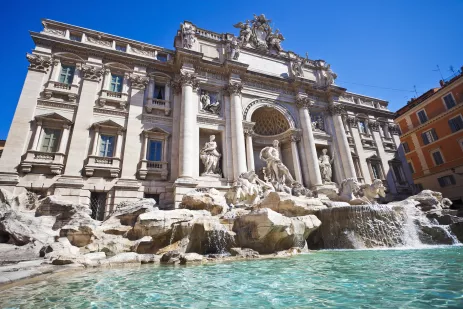
The Trevi Fountain is the meeting point of three streets in Rome – literally meaning ‘three ways’ in Italian (tre vie). It's the largest fountain in Rome, measuring at a magnificent 26 metres in height and 20 metres in length. Whilst the first fountain was built during the Renaissance era, the origins date back to 19 B.C. at the end of the Aqua Virgo aqueduct. Work continued up until 1762 when the final appearance was finalised by Giuseppe Pannini after Nicola Salvi spent many years working on it. There's a myth surrounding the fountain and it has something to do with tossing coins into the water. It began with the release of the film Three Coins in the Fountain (1954) - one coin means you’ll return to Rome, two coins you’ll fall in love with an Italian and three, you’ll marry the person that you first met. Of course, that’s just superstition – right?
How about making a wish at this beautiful fountain on our Classical Italy: Florence, Siena, Assisi and Rome?
Stravinsky fountain – Paris, France
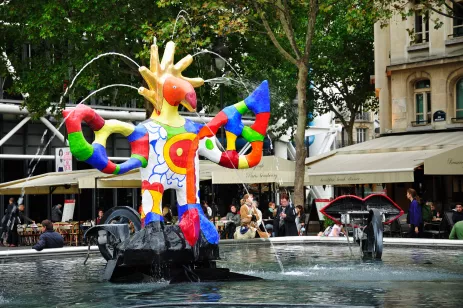
On a Paris tour, you’ll come across the peculiar Stravinsky Fountain. Designed by Jean Tinguely and Niki de Saint Phalle, the unusual arrangement of disorderly designs combines bright colours and black machin-esque structures to evoke the modern classical music of Igor Stravinsky. The chaotic sights include the bowler hat of a clown, a treble clef and a pair of red clips – all of which are said to define Stravinsky’s jazz music. Even nature contributes to the fountain. You'll find moss naturally growing over the fountain due to the water being left untreated, but this was intentional. Since its release in 1983, the fountain has remained an eye-popping tourist spot.
The Magic Water Circuit – Lima, Peru
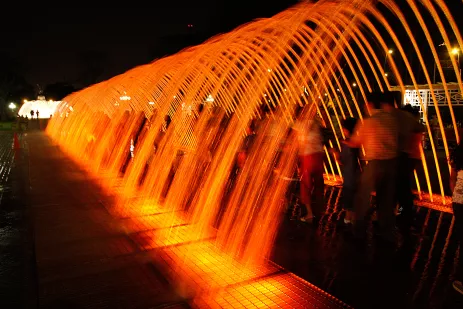
A whopping $13 million to construct, the Circuito Mágico del Agua (Magic Water Circuit) is a series of 13 illuminated fountains in Lima’s Parque de la Reserva, it made an appearance in the Guiness Book of World Records for being the largest fountain in the world. On a tour to Peru, be ready for a marvellous walk through the fountains, some with interactive elements too, so take care with your timing – you might get a little bit wet. Well, we say a little...
Jet d’Eau - Geneva, Switzerland
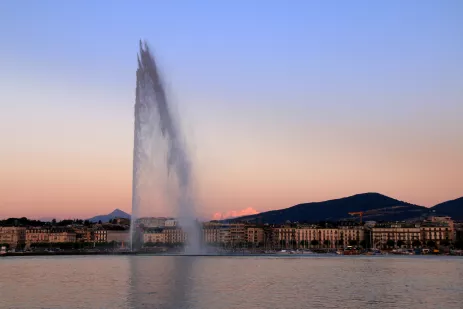
The Jet d’Eau (water jet) is a landmark on the stunning Geneva Lake and the tallest fountain in the world. Built in 1886 for the purpose of releasing excessive pressure from a nearby plant, it soon become an icon in Geneva. Shooting 500 litres of water into the air every single second, it symbolises the strength and integrity of the city and the country itself.
And on a Switzerland, the Matterhorn and the Glacier Express, buckle up for an exciting trip to see this Swiss spectacle.
Vaillancourt fountain – San Francisco, USA
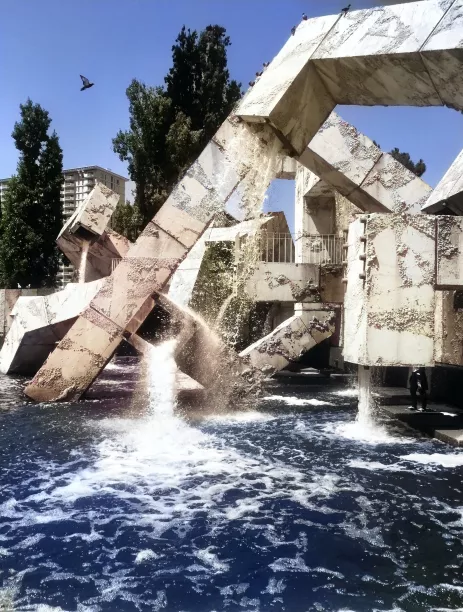
A controversial tourist spot, the Vaillancourt Fountain resides in Justin Herman Plaza. Whether you love or hate the water spirting tubes of concrete, the modern structure was built in 1971 by artist Armand Vaillancourt. Over the years, it’s been proposed to be demolished without success. But this desire for removal has made it a striking tourist attraction. So how about deciding for yourself what you think of the fountain on a Grand Tour of California and the Golden West?
Piața Unirii - Bucharest, Romania
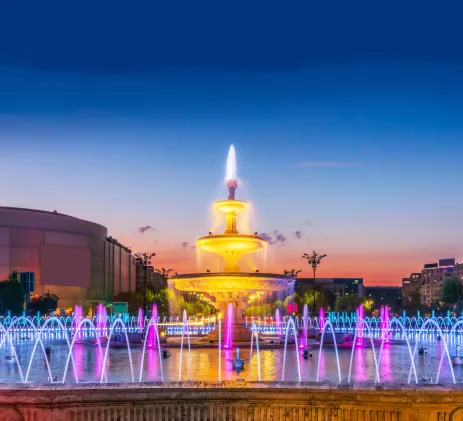
The water fountains of Bucharest’s Unirii Square offer one of the most impressive, choreographed water displays in the world. Built during the communist period, they underwent huge restoration – claiming to be the first smart computer-designed fountains in Europe with a Guiness World Record for the longest choreographed fountain systems. If you’re out and about in the Romanian capital by day, but by night, they’ll blow your socks off. Several times a week during the high season, fountain-spotters are treated to a 44-minute show of colour, music and 3D laser projections on the water – and the best part? It’s completely free!
God, our Father, on the Rainbow – Stockholm, Sweden
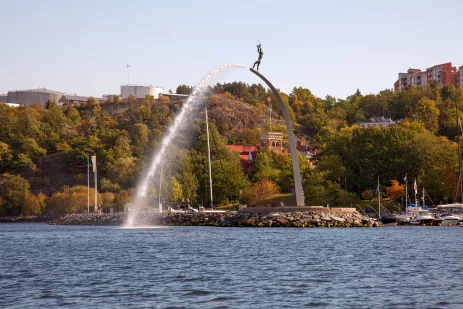
Renowned Swedish sculptor Carl Miles conceived the idea for ‘God, our Father, on the Rainbow’ in 1946 as a tribute to the newly created UN and planned to build it in New York. After years of fruitless discussions, the project was scrapped, only to be recommissioned 40 years later by an American sculpture and pupil of Miles, Marshal Fredricks. 49 years after its initial ideation, the sculpture stood 18 metres tall in Nacka Strand, a suburb on the main waterway approaching central Stockholm – and we think it’s the perfect location! It depicts God, naked, balancing at the end of a monumental arch, hanging stars tossed his way by an angel stood at the foot of the sculpture. The cascading water, ascending then descending over the arch is said to be symbolic of the Holy Spirit and eternal life. It’s a truly awesome sight.
Apollo’s fountain – Versailles, France
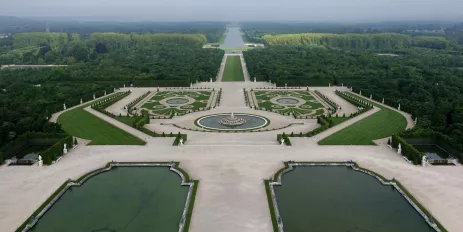
With its foaming horses, whales and tritons blowing water from wreathed horns, this eye-catching French fountain is one of the best. Located within the extensive 2,000-acre estate of the Palace of Versailles, amid Louis XIV’s exquisitely designed gardens, it’s one of eight stunning fountains on the estate. Inspired by the idea of the sun god Apollo rising from the sea at dawn Designed by Charles Le Brun, its cascading torrents stand at the head of a mile-long canal through the lavish estate.
These are just a few of the fascinating fountains you can encounter. How about checking out our full list of tours. Who knows what you’ll discover.

